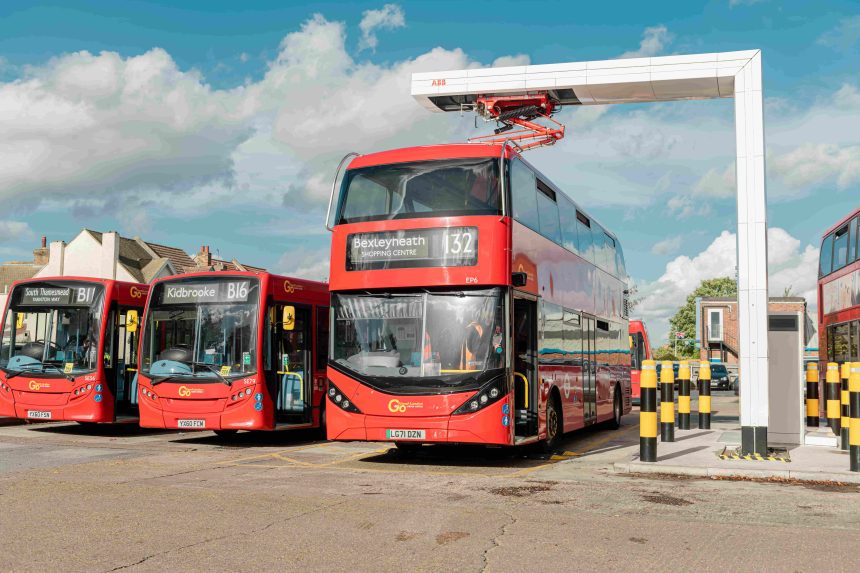As we stand on the cusp of 2024, the electric mobility revolution feels like it has finally gained unstoppable momentum. With vehicle sales worldwide growing exponentially due to falling costs, improving technology, and serious government support in several markets, we will reach a real tipping point in the year ahead.
Consumers, businesses, and the public sector are switching to electric vehicles (EVs) in ever more significant numbers. In 2023, the global number of new EV owners amongst consumers rose by 11%, even with latent concerns in many markets over the pace, quality, and reliability of public charging. As charging infrastructure expands, longer-range vehicles come onto the market, and the cost of conventional fuels remains high in 2024, we expect to see exponential growth in the coming year.
The zero-emission bus (ZEB) revolution has made the most progress in the past years, and we expect to see this continue to grow in the coming years. Zero-emission trucks are now beginning to make an entrance and are fulfilling their goals, and this market will see the greatest growth in 2024. We are also predicting that the construction market will begin to see seeding of equipment particularly in large scale construction sites where zero emissions is being mandated. As a result, all these markets will bring economies of scale to bear.
Our predictions for the ZEB market in 2024:
1. ZEBs are fast becoming the vehicle of choice
The bus sector has made good progress to transitioning to EV fleets, but we have seen some back peddling in the past year with the pushback of the net zero deadline enabling some operators to still purchase diesel buses.
Bus makers believe the end date of petrol and diesel should be set in line with the end date for non-zero emission cars and vans, which was disappointingly put back to 2035 in September. It will be interesting to see whether a general election in 2024 prompts a rethink on targets to help accelerate the transition even further. There is undoubtedly appetite amongst operators and local authorities to move faster.3
Regardless of the timing, momentum in the ZEB market is creating a strong demand for vehicles. This will positively impact pricing and competitiveness, with manufacturers hurrying new models to market as quickly as they can.
2. New ZEB projects will continue at a pace
We have seen a constant stream of fleet electrification announcements in 2023. The government announced the second phased of its ZEBRA scheme this year, £129 million has been made available to support the introductions of new ZEBs from now until 2025.
We were delighted to be awarded the contract by Warrington Borough Council back in July to provide the infrastructure that will power its new 105-strong ZEB fleet scheduled for delivery in 2024. This is one of the biggest electric bus orders by any town or city in the UK to date, being made with support from the ZEBRA scheme. We will see a steady stream of local authorities following this
path in 2024 as the pace of transformation picks up. We have seen the pace pickup in the second half of this year with new contracts being progressed by Lothian Buses, Stagecoach, TfGM, Go-Ahead and Metroline who are all committed to electrifying their transportation fleets. Scotland is striving hard to phase out the majority of diesel buses with its overall net-zero target set for 2045. Currently there are just over 600 electric buses in Scotland. England is aiming for 12.5% of its bus fleet to be electric by 2025. London has taken the lead and reached a milestone of 1,000 ZEBs in August this year, they have ambitious goals to have 9,000 new ZEBs between 2030 and 2034. This shows that despite government pushback on net-zero targets the industry is committed to pushing forward.
3. Plenty of energy will go into solving the affordability challenge
The bus sector has particularly challenging electrification and net zero targets, requiring innovation in delivery and funding models for operators to achieve them.
The affordability of battery electric vehicles (BEVs) and associated infrastructure is a real challenge when operators are facing the same number of passengers and limited potential for growing revenues through fare increases.
The scale and cost of the electrification projects required present a substantial barrier. That is why we recently introduced an innovative as-a-service solution called MOBILITe that provides bus operators with everything they need to go electric for a fixed monthly cost. The solution makes it quicker and easier for customers to access the capital, services, and expertise they need to electrify their fleets. We expect other players to develop new models to help overcome the ZEB affordability challenges in the coming year.
4. Exploring new models of depot utilisation
Bus depots are becoming industrial-sized users of electricity. An average bus depot with around 100 buses is looking at a nightly demand of 30gW/h. That puts pressure on local grid infrastructure, which requires careful planning and new thinking.
As businesses across transport and industry clamour for connection points to a challenged and constrained grid, bus depots look increasingly promising as potential sites to help electrify other fleets. Bus operators could gain from opening their depots to monetize their charging assets during times they would otherwise be idle, providing a new revenue stream. We will see more depot utilization opportunities being explored and trials taking place in 2024.
5. Energy management ecosystem will become a reality
Meeting the growing demand for ZEBs in 2024 means addressing the infrastructure challenge and developing the best technology solutions for energy management. EV charger load management is a crucial piece of the puzzle, ensuring that the adoption of ZEBs is both practical and sustainable, so I expect this to become more of a focus within the market this coming year.
Investing in and implementing effective Load Management solutions will be critical to a smoother, more effective transition. These solutions help maximize the existing grid infrastructure’s capacity, reducing the need to invest in new generation or distribution capacity. They also play a critical role in helping EV fleet operators ensure the maximum availability of vehicles and closely manage energy costs.
Load Management also plays an important role in helping fleet operators reduce their energy costs, both financially and environmentally. They can maximize their off-peak charging, leading to significant savings over time.
With unprecedented levels of investment into electrification, I expect 2024 will be a pivotal year for picking up the momentum of infrastructure progress to enable Zero Emission Bus fleets. Done right, it will create a shift of optimism in the market to electrify other fleets, and this will likely support wider adoption, contributing significantly to reducing carbon emissions.



























